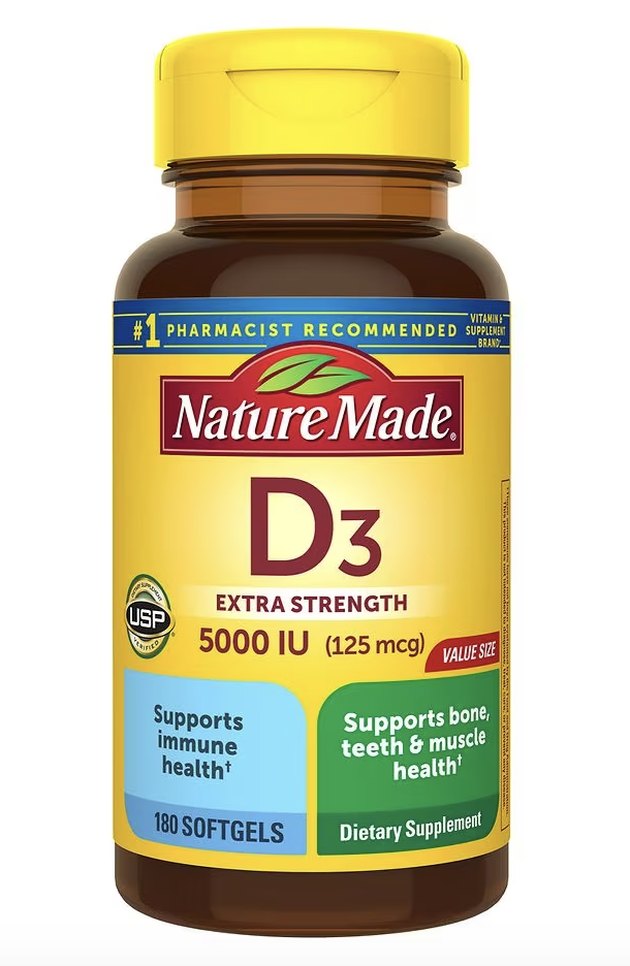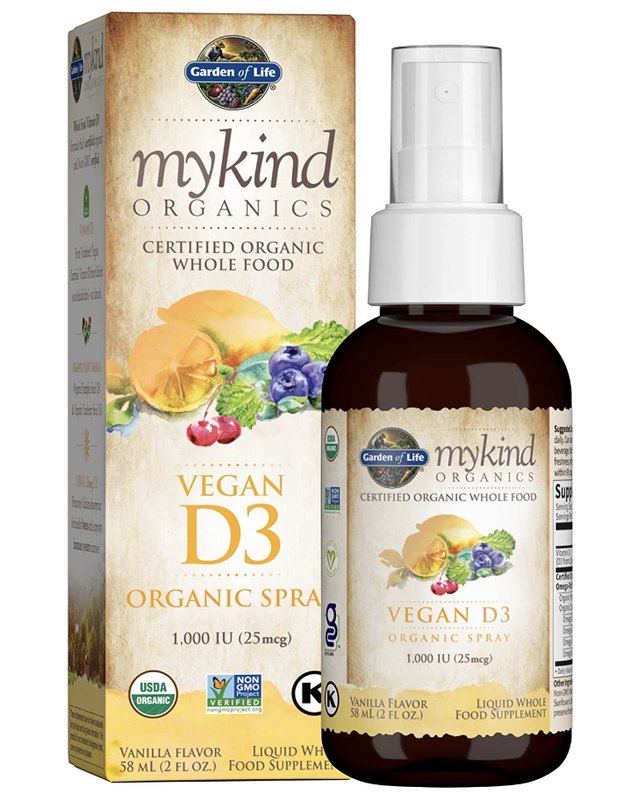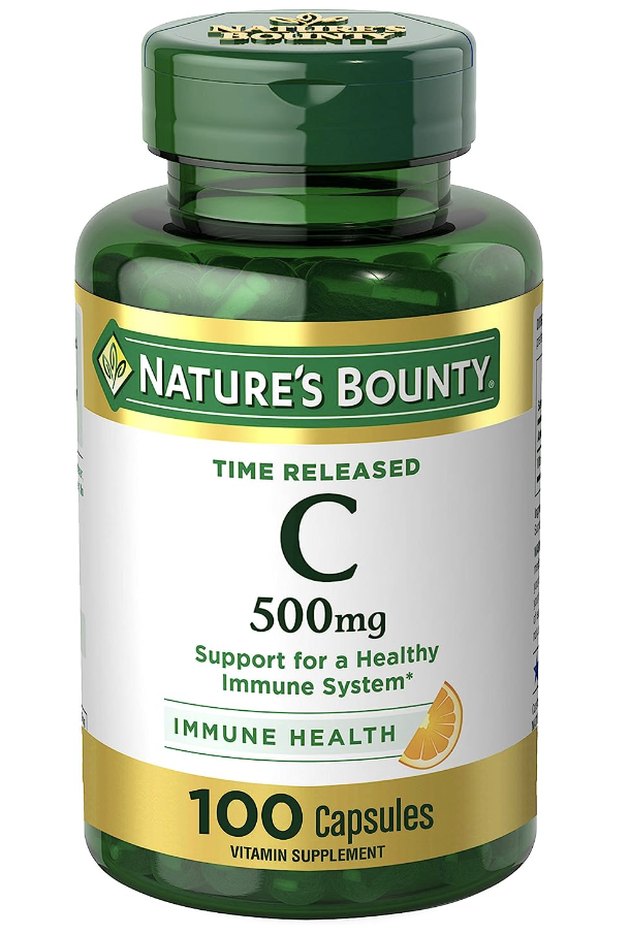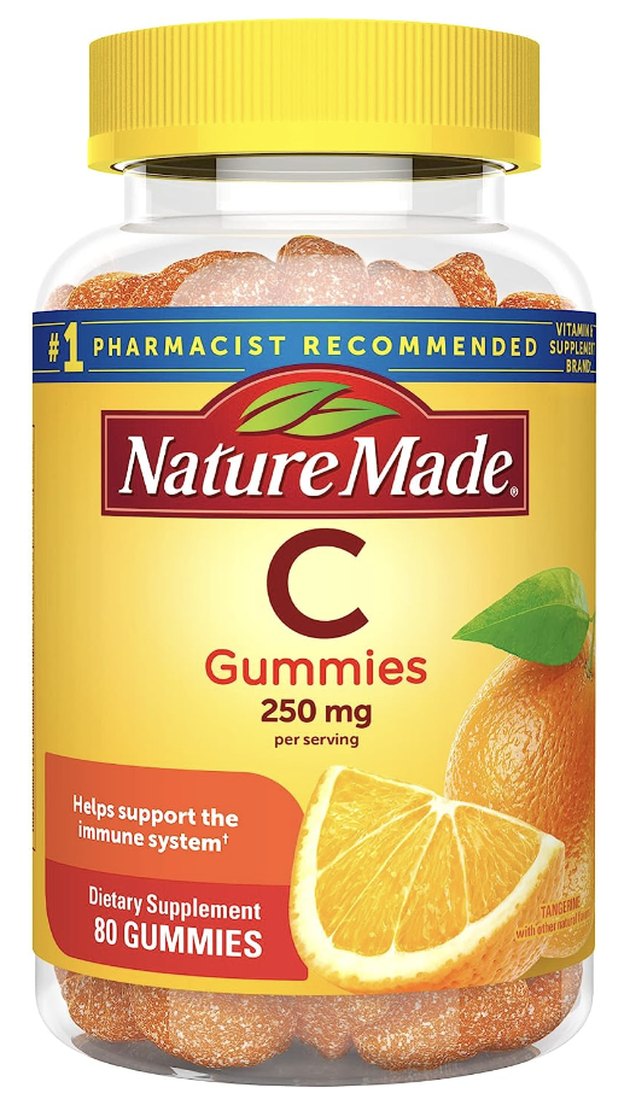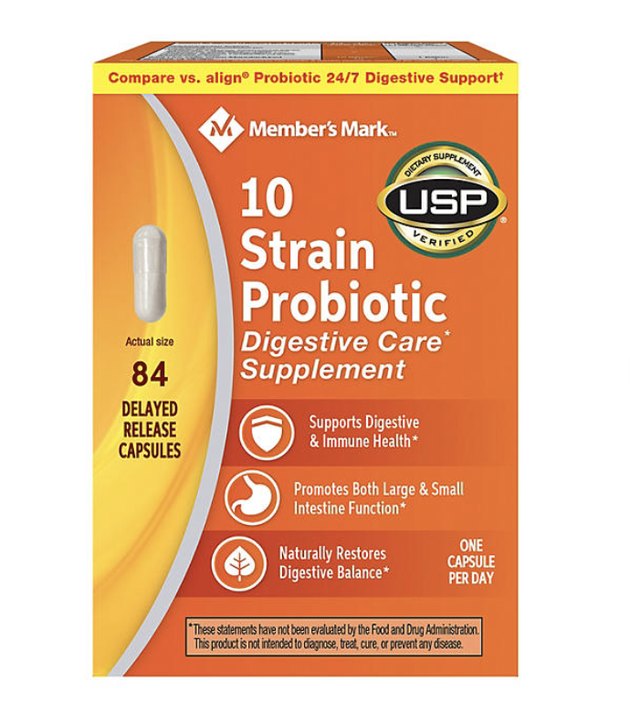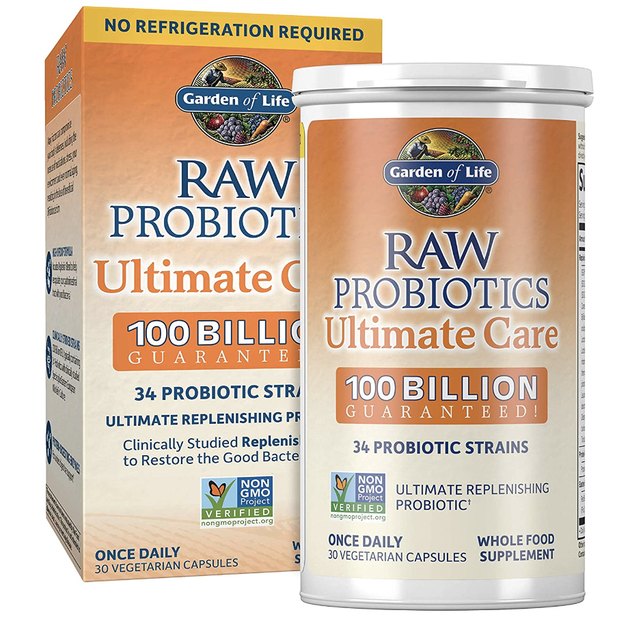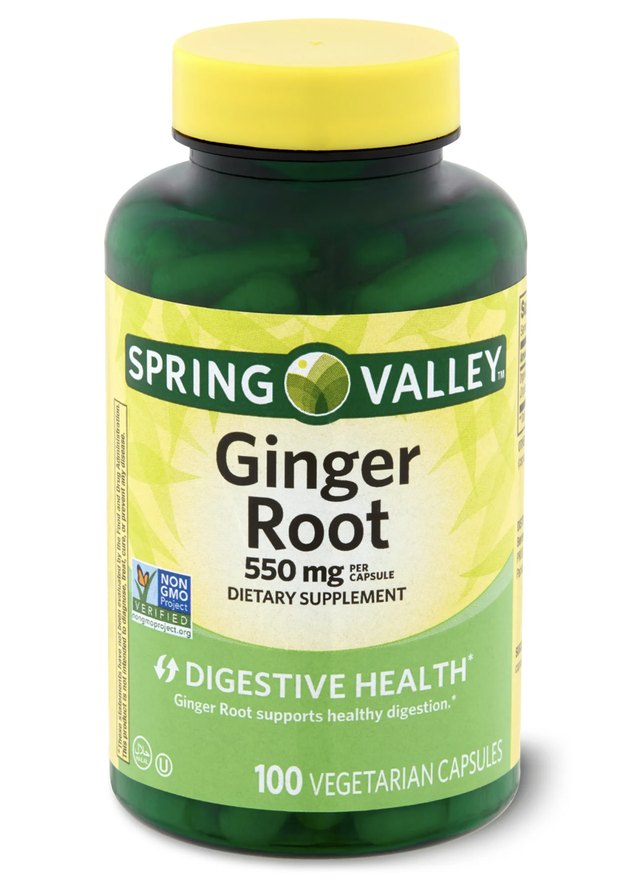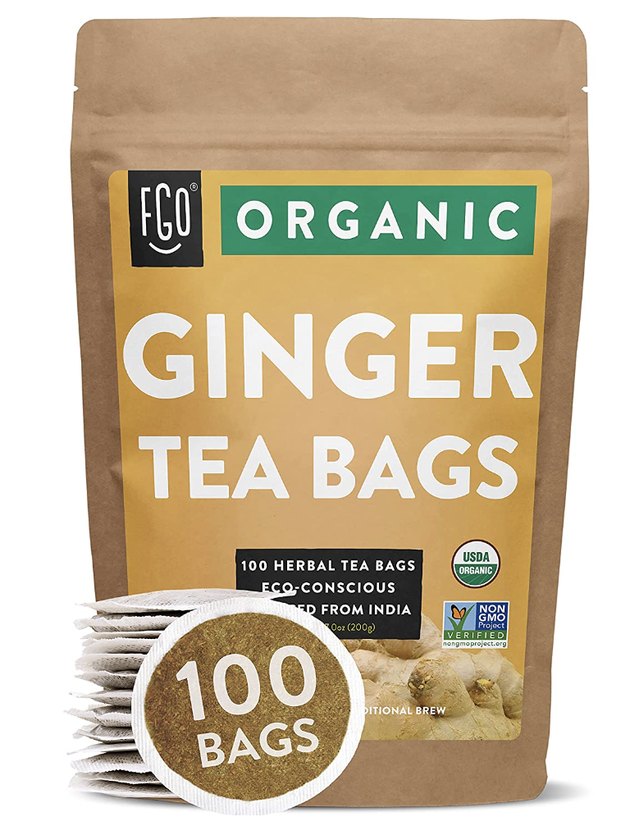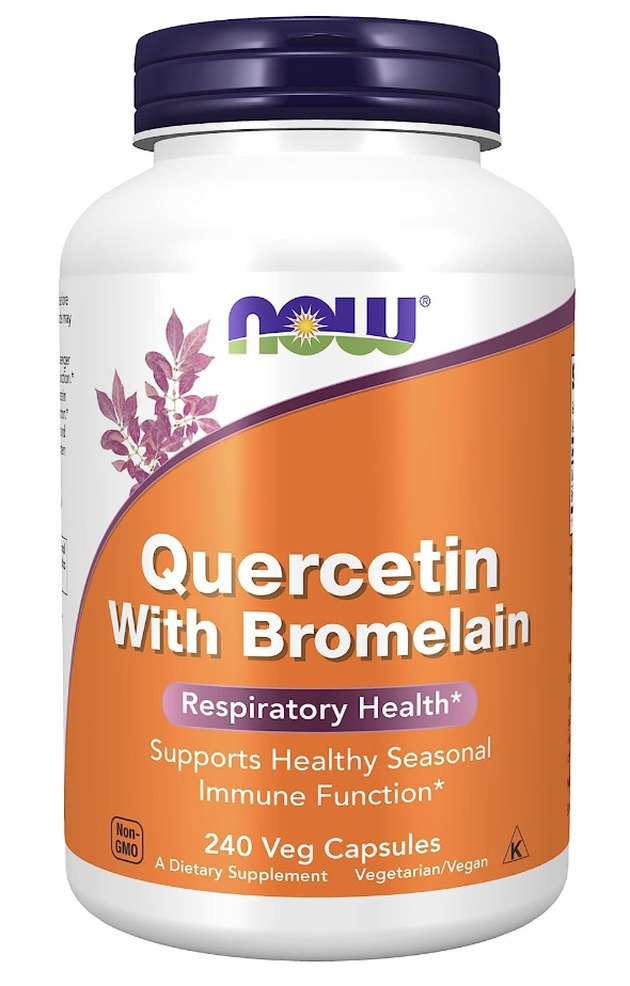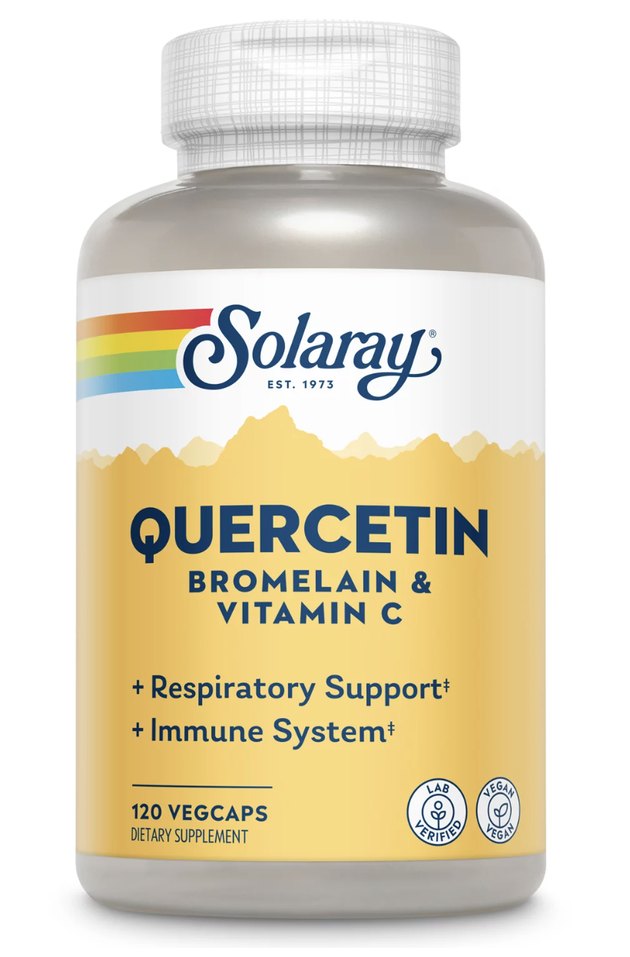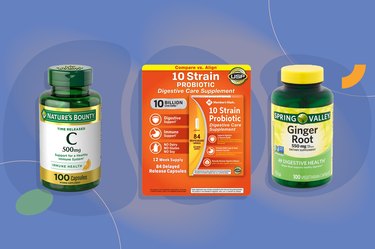
If you struggle with sinusitis, more often called sinus infections, then you know how miserable they can make your life. The American College of Allergy, Asthma, and Immunology notes that acute sinus infections last anywhere from three to eight weeks — no one has time for that.
Sinusitis is usually caused by an infection, which causes inflammation in the sinus cavities of your face, according to Yale Medicine. Symptoms include headache, fever, runny nose, fatigue, bad breath, coughing and congestion.
Video of the Day
Video of the Day
Three weeks of that and you're sure to be looking for some relief.
While there's no cure (beyond waiting them out), there are several natural remedies for sinus infections you can try, such as nasal irrigation and drinking ginger tea to help ease symptoms, and you can also talk to your doctor about adding supplements that support your immune system.
Terrell Smith, MD, founding physician at Spora Health, recommends a food-first approach when it comes to increasing the immune-supportive nutrients in your diet, but he also says the following supplements may help, as long as your doctor gives the OK.
The Best Supplements for Sinusitis
Vitamin D
- Nature Made Extra Strength Vitamin D3 ($7.94, Walmart)
- Garden of Life D3 Supplement Spray ($17.49, Amazon)
Vitamin C
- Nature's Bounty Vitamin C ($14.39, Amazon)
- Nature Made Vitamin C Gummies ($7.99, Amazon)
Probiotics
- Member's Mark 10-Strain Probiotic ($15.67, Samsclub.com)
- Garden of Life RAW Probiotics Ultimate Care ($35.09, Amazon)
Ginger
- Spring Valley Ginger Root ($9.10, Amazon)
- FGO Organic Ginger Tea Bags ($6.99, Amazon)
Bromelain and Quercetin
- NOW Foods Quercetin with Bromelain Supplements ($20.54, Amazon)
- Solaray QBC Plex Supplements ($31.49, Amazon)
How We Chose
We tapped Dr. Smith and combed through current research to come up with the list of vitamins and supplements below. Products were chosen based on the following criteria:
- Third-party tested for quality
- Cost
- Effectiveness
Find more information on how we choose and cover products here.
1. Vitamin D
Vitamin D is a bit of a nutrition buzzword, and its popularity in name recognition is only matched by its effectiveness. Low vitamin D status has been linked to conditions where inflammation is high, such as sinusitis.
In a recent study, people with sinusitis were either given supplemental vitamin D or a placebo to see if it could help their chronic infection. Those who supplemented with vitamin D reported significantly lower symptoms (sneezing, itching, congestion and runny nose) after three months, according to June 2020 research in Journal of Family Medicine and Primary Care.
"Vitamin D works as a hormone to support the immune system," Dr. Smith tells LIVESTRONG.com. "This helps to both fight off infections and additionally the inflammatory process of sinusitis. Vitamin D is contained in many foods and milk, so I think a diet with sufficient vitamin D is appropriate for sinusitis."
We also get vitamin D from the sun, which can be tricky in the colder months. But getting enough vitamin D year-round may help keep your immune system strong and reduce your risk of more sinus infections.
The RDA for vitamin D is 600 IU daily and 800 IU if you're over 70. The upper limit for vitamin D is 4,000 IU per day. Most over-the-counter vitamin D supplements are 1,000 IU, and this daily dose is safe for most adults.
It's best to get your vitamin D checked first before supplementing, though. This will give you a baseline and help your doctor give you a better idea of how much vitamin D you should take in a day.
2. Vitamin C
Vitamin C has long been regarded as a one of the strongest antioxidants in the body. Early studies on vitamin C indicated that the nutrient could prevent the common cold, but newer studies have concluded that taking vitamin C can help lessen the severity of a cold and your time with symptoms, according to 2018 research in BioMed Research International.
Why is this important for sinusitis? The Centers for Disease Control and Prevention note that one of the risk factors for sinusitis is having a cold, in addition to the symptoms of sinusitis mimicking the symptoms of the common cold. If you can lessen the duration of your symptoms, you may be able to ward off a sinus infection.
"Vitamin C helps reduce damage to cells of the body that can be ongoing with sinusitis. Additionally, it helps support the immune cells," Dr. Smith explains. "Combining these two principles, you can clearly see how vitamin C would fight the inflammatory process of sinusitis."
There is no evidence directly linking vitamin C to sinus infections, but it does have anti-inflammatory properties, which is important for your overall health. Vitamin C deficiency is the fourth leading nutrient deficiency in the United States, according to 2017 research in Nutrients, so there's a good chance you're not getting enough.
A poor diet, smoking, environmental pollution and even excessive stress can increase your needs for vitamin C.
Vitamin C is a water-soluble vitamin, which means we don't store it — you must get vitamin C every day. The risk of toxicity is low, but that doesn't give you the go-ahead to mega-dose. Following the dosage of a reputable supplement will keep you on the safe side.
3. Probiotics
Depending on the cause of your sinus infection, your doctor might prescribe antibiotics. In this case, Dr. Smith advocates probiotics for his patients because, he says, "when you take antibiotics, they do an excellent job at killing bacteria, however, they also kill the good and healthy bacteria in the gut. Probiotics help to rebuild and sustain the good bacteria in the gut."
To get the healing powers of your medication but also keep your gut healthy, add some probiotics to your diet daily, especially the days you are on antibiotics. This will help repopulate the diversity of your microbiome — the colony of bacteria in your gut.
The research on probiotics and the treatment of sinus infections is extremely limited, so there's no evidence to suggest that taking probiotics will help treat your symptoms, according to a 2018 review in World Journal of Otorhinolaryngology - Head and Neck Surgery.
However, taking probiotics, especially during and after a course of antibiotics, may help improve your overall immune health.
4. Ginger
The research on ginger and its use for sinus infection symptoms is extremely limited. A recent study looked at the use of ginger extract on the symptoms of allergic rhinitis and found that it was just as effective as medication in reducing itching, runny nose, nasal congestion and sneezing, according to April 2020 research in BMC Complementary Medicine and Therapies.
Sinusitis is an inflammatory condition. The National Institutes of Health (NIH) note that ginger may be able to target the mechanisms in the body that are pro-inflammatory and help suppress inflammation.
There is no guarantee that ginger will work for your sinusitis, but it is considered safe at doses up to 4 grams, according to the NIH. Anything over that can cause gastrointestinal discomfort and can interfere with blood-thinning medication.
You can grate fresh ginger root and add it to smoothies or yogurt, or you could drink ginger tea — which is recommended by Dr. Smith as a low-risk method to help soothe your sinusitis symptoms.
"Ginger tea is helpful in a few different ways," Dr. Smith explains. "It is known to have antioxidant properties — meaning it helps prevent cell damage — and it is anti-inflammatory, which helps reduce disease states such as sinusitis." Breathing in the warm steam from a mug of tea might also help, he notes, because "humidified air is beneficial for sinusitis, as it helps create a moist environment to help the damaged and irritated tissue to heal."
5. Bromelain and Quercetin
Both bromelain (an enzyme derived from pineapple) and quercetin (a flavonoid found in certain foods like citrus, apples and onions) can help reduce inflammation in the body and relieve the symptoms of sinusitis. When combined, these ingredients can act like an antihistamine — which helps reduce allergy symptoms such as runny nose and watery eyes, per Mount Sinai.
And it's not just sinusitis that these supplements can help to relieve. According to a May 2020 study in Asthma, Allergy & Clinical Immunology, quercetin has the potential to reduce symptoms of asthma like mucus production and airway hyperactivity.
Another June 2018 study in the Journal of the Italian Society of Otorhinolaryngology found that bromelain has the ability to pass quickly through your blood to the mucus membranes in your sinuses, allowing it to act like an anti-inflammatory agent in people with chronic rhinosinusitis.
It's important to keep in mind, though, that both bromelain and quercetin can interact with certain medications like antibiotics and blood thinners. It's important to talk to your doctor prior to trying them out.
How to Choose a Quality Dietary Supplement
Don't head to the supplement aisle without doing your homework first. There are some things you need to know before choosing a supplement to put in your body.
1. Look for Third-Party Testing
Make this your number-one double-check. If you are not 100 percent sure that your supplement contains what it claims — nothing more, nothing less — then put it back on the shelf.
The Food & Drug Administration does not approve supplements before they're sold, so many supplement companies choose to have their products go through additional testing. This is an optional certification that goes through a third-party lab to test for purity, dosage and to ensure it will disintegrate in your body so it can be absorbed properly. Many will also check for heavy metal contamination.
The three big third-party labs are Consumer Lab, USP and NSF, which includes NSF for Sport. Look for these on the label. Some supplement companies choose different labs, and these will be indicated on their website.
2. Avoid Fillers
Especially when targeting specific vitamins for your supplementing needs, it's important to turn that bottle over and check out the label. This is where you will find any additional ingredients or fillers that may have been added to your supplement.
Some of these are completely harmless and may be added for additional absorption — for example, you might find calcium and vitamin D added together in a supplement.
You also might find possible allergens, such as soy or gluten. If you are choosing a gummy vitamin, it's important to know this is a source of added sugar, if that's something you're watching in your diet right now.
- Yale Medicine: "Sinus Infection"
- Journal of Family Medicine and Primary Care: "The Role of Oral Vitamin D3 Supplementation in The Treatment of Chronic Rhinosinusitis in Adults with Vitamin D Deficiency"
- Harvard T.H. Chan School of Public Health: "Vitamin D"
- BioMed Research International: "Extra Dose of Vitamin C Based on a Daily Supplementation Shortens the Common Cold: A Meta-Analysis of 9 Randomized Controlled Trials"
- Nutrients: "Vitamin C and Immune Function"
- World Journal of Otorhinolarynogology - Head and Neck Surgery: "The Microbiome and Chronic Rhinosinusitis"
- American College of Allergy, Asthma, and Immunology: "Sinus Infection"
- NIH: "Ginger Root"
- Mount Sinai: "Sinusitis"
- Asthma, Allergy & Clinical Immunology: "Quercetin with the potential effect on allergic diseases"
- Journal of the Italian Society of Otorhinolaryngology: "Bromelain’s penetration into the blood and sinonasal mucosa in patients with chronic rhinosinusitis"
- MedlinePlus: Sinusitis
Is this an emergency? If you are experiencing serious medical symptoms, please see the National Library of Medicine’s list of signs you need emergency medical attention or call 911.
